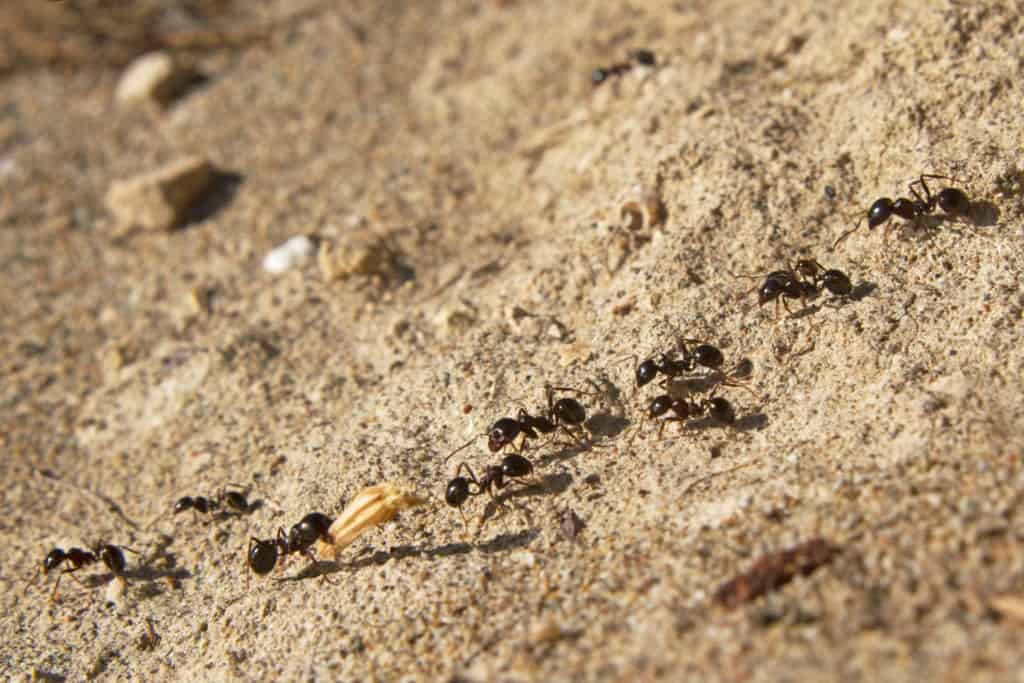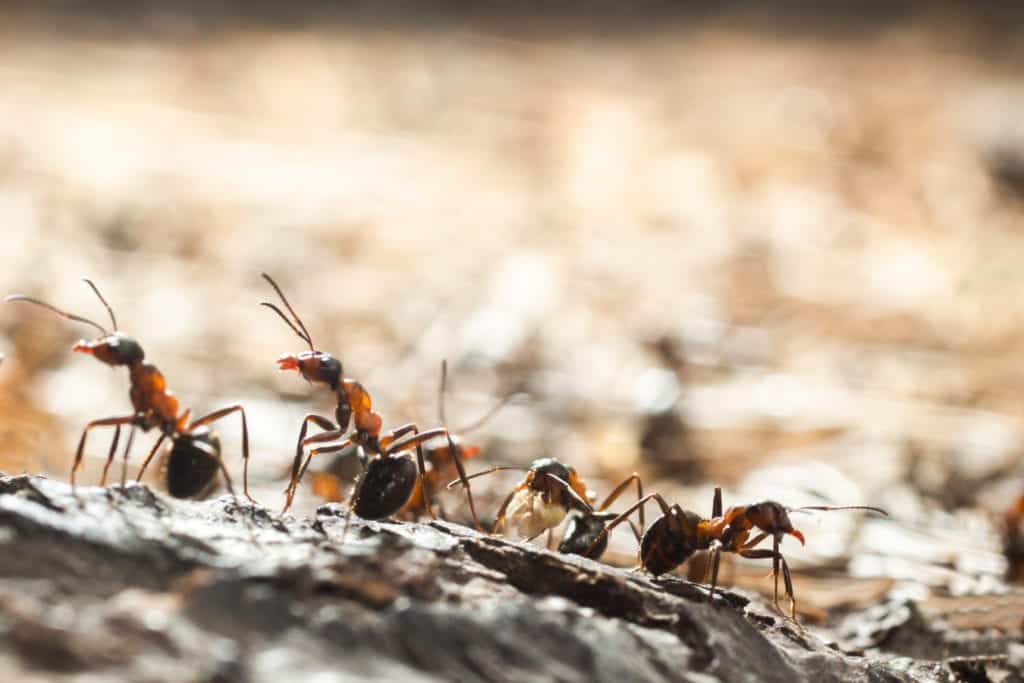Why Don’t Ants Have Traffic Jams?
Why Don’t Ants Have Traffic Jams?
The Most Frustrating Wait
Collectively in the United States, we spend roughly 1 million years trapped in gridlock. With one car per six people within our population, it is not surprising that it is exceedingly difficult to get around – especially in more crowded cities like Chicago. Yet ants, who have utterly massive populations, don’t seem to have the same problem. Think about it… you’ve probably never seen a stagnant line of ants where none of them are marching. This is due to the fact that they do actually manage to avoid traffic. But exactly how do they manage it? Scientists have been wondering the same thing and launched a series of studies to see if we can improve our own traffic by modeling ant behavior. 
Cooperative Genetic Programming
While at a first glance, hordes of ants may seem rather disorganized and perhaps like they are moving at random, this is actually not the case. When examined in depth it is clear that ants form lanes as they move about, adjusting their movements accordingly in the case of potential traffic jams in order to continue the flow of movement. Typically, this is divided into three lanes. While some ants are heading back to the colony with food and provisions, others are heading out to forage. Those that are homeward bound are often carrying loads, making it more difficult to maneuver. As such, if two ants are headed for collision, the one not burdened with items veers left or right, allowing the returning ant to take the center lane. This happens on repeat, forming a center lane of returning ants and two bordering lanes of ants leaving. As a whole, this is a case of individuals relatively mindlessly contributing to the flow of a mass pattern, which is made possible by their cooperative genetic programing. But why are we so different? Why doesn’t this happen for human traffic Well… it actually does. 
Pedestrian Traffic
Consider the massive groups of people that travel through Chicago on a daily basis. We pass one another, use crowded crosswalks, venture up and down stairways to the train stations… yet we don’t get trapped in gridlocks like we do in cars. Similar to ants, you can actually observe the way people almost mindlessly move with the flow of the masses. So, why is this so different when it comes to car travel? And can we implement this ant technique to help improve our vehicle traffic? 
Human Traffic vs. the Ant Fast Lane
Unfortunately, the answer is not particularly flattering to the human race as it comes down to an inherent sense of selfishness. Rather than actually working within a cooperative flow, cars speed up to pass one another, consistently lane switch, don’t let other cars merge into traffic, trail so close behind others that they constantly have to slam on their breaks causing chain reactions down the street, drive way below the speed limit causing other cars to have to navigate around them to maintain proper speeds on the road and, in general, drivers are rarely considering everyone else’s need to get where they need to go and focus solely on the path that works best for them, not the cooperative whole. So, as it turns out, we are traffic. Rather than traffic being something that happens to us, we have to admit that we – as individuals – are ultimately traffic. In the case of ants, if one colony member carrying goods for the colony, the other ants don’t dart around randomly to pass them, cut them off, etc. They flow with the marching speed and move in a cooperative way because that is the most beneficial course of action for the colony as a whole. This lack in ego paired with their group-centric consideration of the good of the colony means that ants just don’t get caught in traffic. Perhaps if we can adopt their self-less actions on the road then we too, can eventually eliminate traffic. 
Citations
Request a Free Quote Today
(We do not share your data with anybody, and only use it for its intended purpose)


